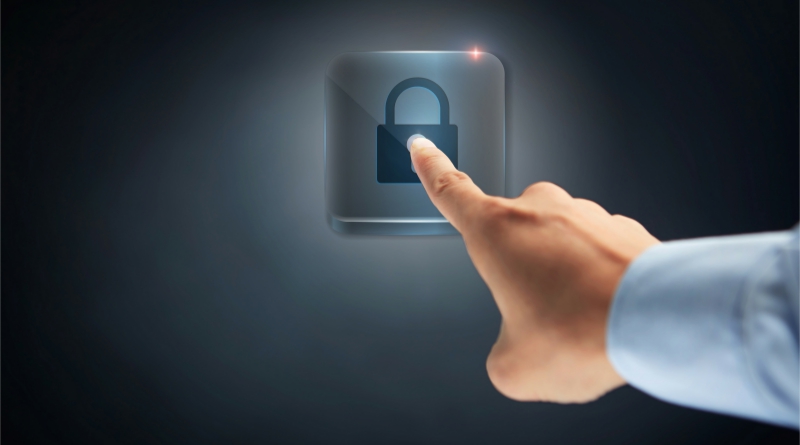The Importance of Data Encryption in Cybersecurity
Used in different security solutions, data encryption keeps unwelcome visitors away, so they can’t get into your important data. Whether you look at it on your disk at home or send data over network wiring, data encryption guarantees your files stay locked and safe.
Every second of the day, sensitive data from health records to credit card numbers is sent through the internet. Thanks to data encryption, it can be done safely. Did you know that encryption enables confidential information to move from one network to another without being jeopardized?
Whenever a data is encrypted, it can’t be accessed and exploited by any unauthorized users.
What is data encryption, by the way?
Removable storage, firewalls, server locks, and passwords are all enough means of protecting data. However, data encryption is the most utilized method. You see, encryption converts data uploads, emails, and messages into ciphertexts, rendering them unreadable by humans.
The encryption process used algorithms converting data into codes so complicated that even the most powerful computers would take forever to break them. Only a computer or individual who has the right key can easily decrypt the data or return it into its original form.
The decryption key is additional algorithm reversing the process of the encryption algorithm.
What are the different types of encryption?
Keep in mind that encryption is normally applied in two forms: asymmetric and symmetric key encryption.
- Asymmetric (Public Key Encryption)
It is a new inclusion in the process of data encryption. It utilizes a group of two keys to encode the data, a public key, and a secret key. The public key is made accessible to anyone who wants to communicate with you. On the other hand, the secret key is kept private to the source device or computer.
Both keys are needed to decrypt any information that utilizes this type of cryptography: the source’s private key and the public key.
- Symmetric (Primary Key Encryption)
It’s the basic encryption form that involves only a single private key to cipher and deciphers the information or data. The technique of Private Key is the most traditional and oldest form of encryption used.
It involves strings or numbers of characters combined with the data affecting the information, so it becomes unreadable and complex. The only drawback of this encryption is that the receiver and sender need an exchange of keys before the information is encoded.

Is Data Encryption in Cybersecurity Important?
The importance of encryption can’t be understated. Even if your information is in a standard infrastructure, there’s a chance your information could be jeopardized. There’s a chance your information could be compromised. However, if you have data encryption, your files are made more impenetrable.
Try to think of this: if your information is in a sanctioned system, adding encryption will safeguard your data as it’s sent out. Sanctioned systems don’t protect in that same way.
How would that play out in the real world? Suppose there’s a user of an organization’s data who has access to sensitive data when they’re at work. Without any data encryption, the might be able to put the readable data on a removable drive or send the data where they wish.
Had encryption been put in place earlier, the user may still have been able to copy or send the data, but the information would be unreadable if they tried to view the data elsewhere. It’s the perks of data encryption like this that present its real significance.
You see, security and attack threats are the major reason why data encryption is so crucial in the cyber world. Most attacks are now possible over a different or ongoing network whenever a connection gets established.
- Virus attacks
The security of the network or business system is always in danger every time resources and networks get attacked by suspicious viruses, malware, or Trojan Horses. That could result in massive data loss, jeopardizing data that could jeopardize personal or business data fortunes.
- Unauthorized access
Take note that illegal interferences within the network could cause data record leaks and loss of private data. Appropriate user authentication tactics could prevent such scenarios. Employ certified resources to determine users’ identify and conduct timely maintenance checks.
- Uncertified services
Uses and installation of unauthorized services and applications could result to security intrusions and breaches. You can employ only certified services and applications to prevent such situations.
- Data capturing
Implementation of these types of attacks takes place during the traverse of data through communication networks. Confidential information gets stolen from such networks, and different data extraction methods are used to the stolen information to decrypt the original data.
- Security threats
Those are attacks impeding the user’s system and cause massive loss of confidential information. It involves unauthorized internet access, database invasions, malware injection, and DOS attacks, among others.
The ancient Greeks were the first to use codes, referred to as ciphers, to replace or transpose numbers and letters. For thousands of years, the science of cryptology was widely utilized to safely send military secrets. Today’s digital encryption has its roots in such proven systems. However, today computers do all the hard work.
Due to the risk of exploitation by cybercriminals and hackers across the globe, it is evident that professionals who undergo correct cybersecurity training will continue to be valued by any entity, which processes sensitive info. Private companies, military and government agencies, credit card companies, and financial firms of all sizes need cybersecurity experts’ skills to keep their networks hacker-proof.
In conclusion, data encryption is very important in the growing digital field of cybersecurity
Having data encryption is crucial for any organization, whether it be small or big. To safeguard your business and data material, having encryption in-transit and at-rest are the only means to keep hackers out of your data, as well as staff taking private data that needs to be left at work.
Data breaches can surely happen to anybody. Hence, always be diligent and don’t risk your precious information into the hands of undesired strangers. Everyone should use data encryption to its utmost potential.



